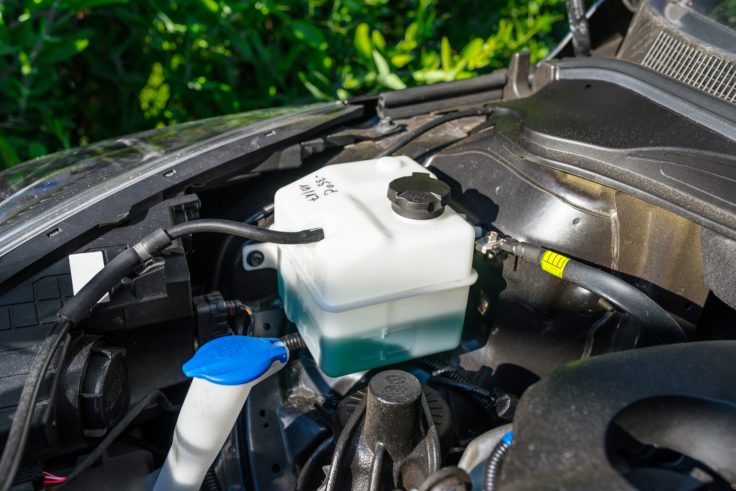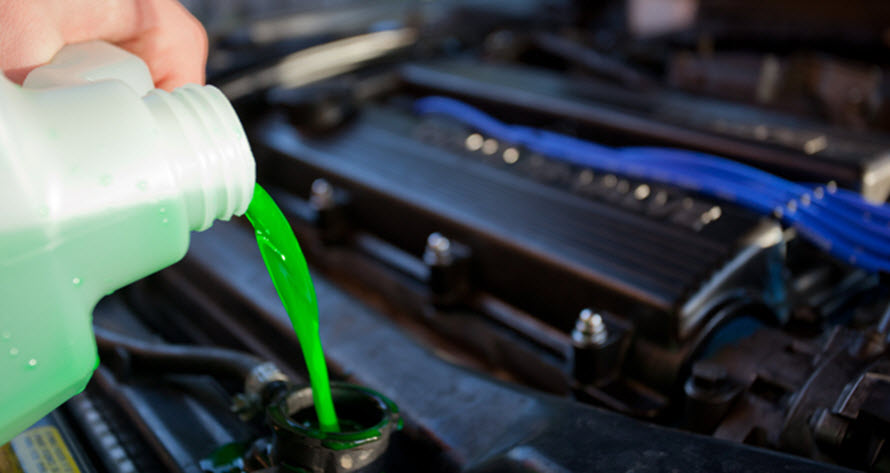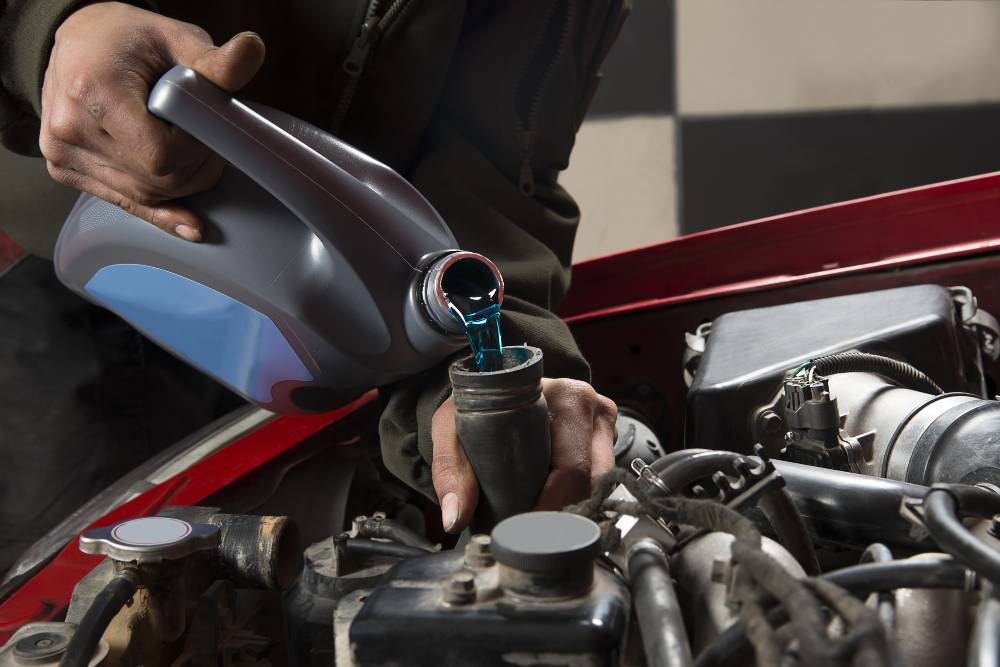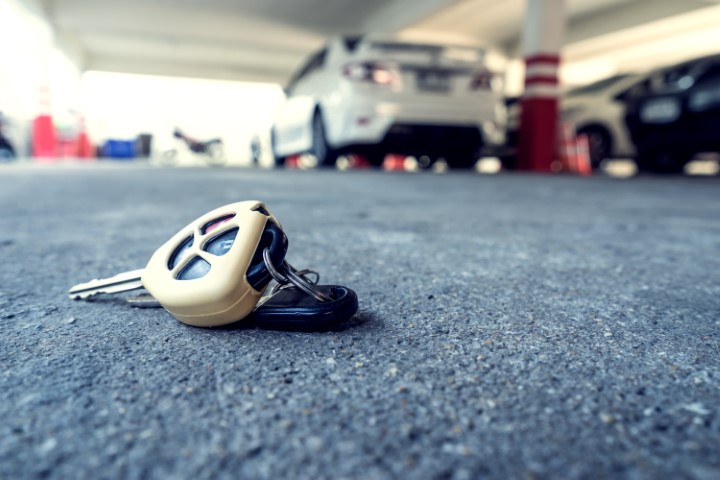Coolant gets low in winter due to a combination of factors. The primary reason is cold weather. When temperatures drop, the coolant in your car’s radiator contracts, occupying less space. This natural contraction can cause the coolant level to drop.
Another factor is the increased engine workload during winter. Your engine has to work harder in colder weather, leading to higher operating temperatures. This, in turn, can result in more rapid coolant evaporation and loss.
To ensure your vehicle remains in good condition during the winter, it’s crucial to monitor and top up your coolant levels regularly. Additionally, check for any leaks or issues with the cooling system, which can exacerbate the problem.
What Are The Factors Contributing to Low Coolant in Winter?

Cold Weather Contraction
During the winter months, the temperature drop can have a significant impact on your vehicle’s coolant.
Coolant, also known as antifreeze, is designed to prevent freezing in your engine, but it’s not immune to the cold itself.
When the mercury plummets, the coolant experiences what’s known as thermal contraction. This means that the molecules in the coolant become more tightly packed, causing it to take up less space within the cooling system.
Imagine a glass of water in your freezer. As it freezes, it expands and takes up more space. Coolant, on the other hand, does the opposite; it contracts and becomes denser in cold temperatures.
As a result, the coolant level in your radiator and reservoir can drop, which is entirely normal and expected.
Increased Engine Workload
Winter places additional demands on your vehicle’s engine. Cold weather makes the engine work harder to reach and maintain the ideal operating temperature.
When your engine is cold, it burns more fuel to generate heat, and it takes longer to warm up. This prolonged warm-up process leads to a higher operating temperature and greater stress on the engine.
As your engine works harder in the cold, it produces more heat, which, in turn, intensifies the demand on the cooling system.
To manage this increased heat, the engine circulates more coolant, causing it to evaporate more quickly. This heightened evaporation can cause the coolant level to drop even further.
How Does Low Coolant Affect Engines in Winter?
Low coolant levels during winter can lead to a range of serious consequences, with the potential to affect both your vehicle’s performance and your safety on the road.
Engine Overheating
Engine overheating is one of the most immediate and critical consequences of low coolant levels in winter. The engine relies on a consistent flow of coolant to regulate its temperature, and when coolant is insufficient, the engine can become too hot.
In the frigid winter months, a properly functioning engine is vital for maintaining warmth inside your vehicle. Low coolant levels can hinder the engine’s ability to cool itself effectively, putting it at a higher risk of overheating.
An overheated engine can be severely damaged, leading to costly repairs or even the need for a full engine replacement. It can also leave you stranded on the side of the road in cold, unfavorable conditions, which is both inconvenient and potentially dangerous.
Engine Damage
The consequences of engine overheating due to low coolant levels extend beyond inconvenience. Excessive heat can cause components within the engine to warp, crack, or seize.
This kind of damage is not only expensive to repair but can also compromise your vehicle’s long-term reliability and performance.
It’s important to realize that preventing engine damage begins with maintaining proper coolant levels, especially during the winter months when the engine faces added stress.
Importance of Maintaining Proper Coolant Levels
The potential consequences of low coolant levels underscore the critical importance of keeping your vehicle’s coolant at the appropriate levels, particularly during the winter season.
Engine Reliability: Proper coolant levels are essential for ensuring your engine operates within its optimal temperature range. This reliability is crucial for maintaining your vehicle’s performance and preventing costly engine damage.
Safety: Avoiding engine overheating due to low coolant levels is essential for your safety and the safety of others on the road. Preventing breakdowns in cold winter conditions can help you avoid hazardous situations.
Comfort: Proper coolant levels not only protect your engine but also contribute to a comfortable driving experience. Maintaining the right temperature inside your vehicle ensures that you stay warm and can defrost your windows effectively.
Fuel Efficiency: A well-regulated engine is more fuel-efficient. Low coolant levels can lead to increased fuel consumption, which not only impacts your budget but also contributes to higher emissions and environmental concerns.
How to Prevent Low Coolant in Winter?

Winter can be harsh on your vehicle’s cooling system, but there are several steps you can take to prevent low coolant levels and ensure your engine remains protected throughout the season:
Check Coolant Levels Regularly
Make it a routine to check your coolant levels before winter sets in and periodically throughout the season. Consult your vehicle’s owner’s manual for guidance on the right type of coolant to use and the appropriate level to maintain.
Use the Right Coolant Mixture
Ensure your coolant mixture is appropriate for winter. Many modern vehicles use a 50/50 mix of coolant and water. In colder regions, you might consider a mix with a higher concentration of antifreeze to protect against freezing.
Inspect for Leaks
Look for any signs of coolant leaks in the engine bay or underneath your vehicle. Leaks can deplete your coolant over time, and identifying and repairing them promptly is crucial.
Pressure Test the Cooling System
Have a professional mechanic perform a pressure test on your vehicle’s cooling system to check for leaks or weak spots. Address any issues found during this test.
Keep the Radiator and Reservoir Full
Ensure that both your radiator and coolant reservoir are filled to their recommended levels. This will provide an extra buffer against low coolant levels.
Maintain Proper Engine Temperature:
Allow your engine to warm up gradually when you start your vehicle in cold weather. Avoid revving the engine excessively or driving aggressively before it reaches the ideal operating temperature.
Use a Block Heater (If Applicable)
If you live in extremely cold climates, consider using a block heater to keep your engine warm when it’s not in use. This can help reduce the demand on your cooling system.
Park in a Garage or Shelter
Whenever possible, park your vehicle in a garage or under some form of shelter to shield it from extreme cold and wind, which can accelerate coolant evaporation.
Keep an Emergency Kit
In case of emergencies, carry an emergency kit in your vehicle that includes extra coolant, water, and essential tools. This can be a lifesaver if you encounter unexpected coolant issues on the road.
FAQ
Why does my car need coolant in the winter?
Your car needs coolant in the winter to regulate the engine’s temperature. Coolant prevents the engine from freezing in cold weather and ensures it operates at the right temperature for optimal performance.
What happens if you drive with low coolant in winter?
Driving with low coolant in winter can lead to engine overheating, which may cause severe damage to your vehicle. It’s essential to maintain the right coolant level to avoid this risk.
How much coolant loss is normal?
A small amount of coolant loss over time is normal due to evaporation and minor leaks. However, significant coolant loss is a cause for concern and should be investigated.
Why is my coolant level low but no leak?
Low coolant levels without visible leaks may indicate an internal engine issue, such as a blown head gasket. It’s crucial to have your vehicle inspected by a professional if this happens.
Can I put water instead of coolant?
In an emergency, you can use water temporarily, but it’s not recommended. Coolant not only prevents freezing but also provides corrosion protection and helps maintain the right temperature. Water alone may not offer these benefits.
How often should you add coolant?
Check your coolant level regularly, especially before winter. Top it up if needed. Typically, you shouldn’t need to add coolant often. If you do, it may indicate a problem that needs attention.
Why is my coolant running out so quickly?
If your coolant is depleting rapidly, there might be a leak, a faulty radiator cap, or an internal engine issue. Consult a mechanic to identify and fix the problem.
What are the symptoms of low coolant?
Low coolant levels can lead to engine overheating, strange engine noises, or even a warning light on your dashboard. If you notice any of these signs, check your coolant level.
What are signs of a coolant leak?
Common signs of a coolant leak include puddles under your car, a sweet or unusual smell, or a visibly low coolant level. Address a coolant leak promptly to prevent engine damage.
Can car AC cause a coolant leak?
The car’s AC system is separate from the coolant system and doesn’t typically cause coolant leaks. However, a malfunctioning AC system can lead to coolant-related issues indirectly if it affects the engine’s cooling.
Final words
In conclusion, it’s clear that the cold weather and added strain on your engine in winter can cause your coolant levels to drop. This natural coolant contraction and increased engine workload are the key culprits. But the consequences of low coolant in winter are more than just inconvenience.
You risk engine overheating, damage, reduced heating, and even increased fuel consumption. These issues affect not only your vehicle’s performance but also your safety and comfort during winter driving.
To avoid these problems, make it a habit to check your coolant, use the right mixture, and keep an eye out for leaks. By taking these simple steps, you can ensure your engine stays cool, your car remains reliable, and you enjoy a worry-free winter behind the wheel. Stay warm and stay safe.











